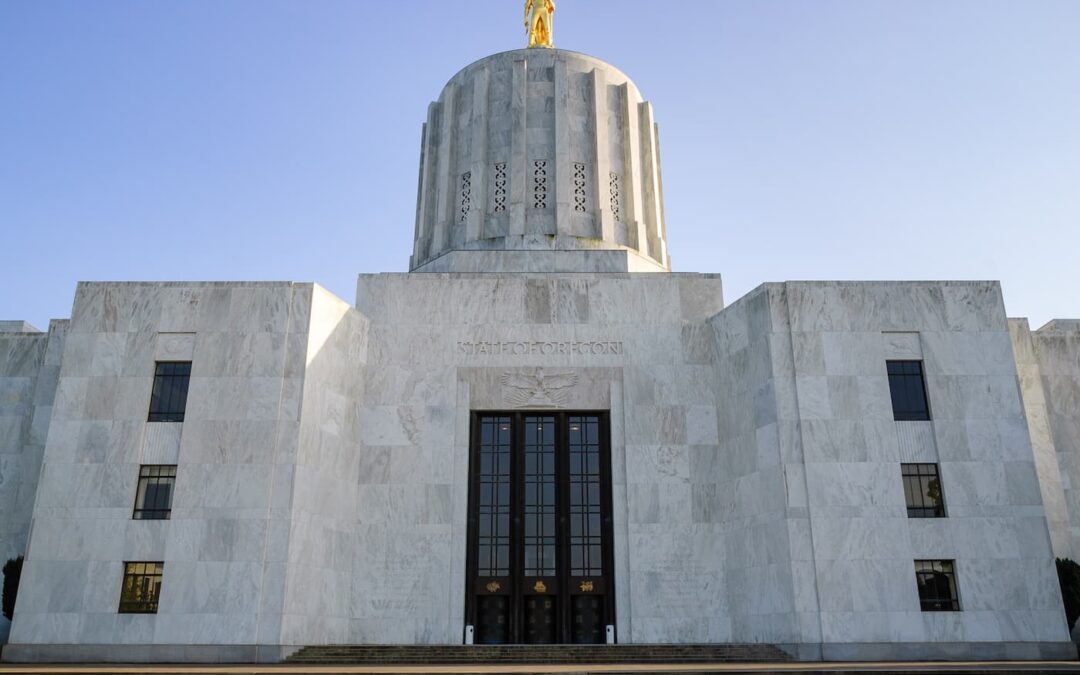Now that SB 611 has passed, Oregon landlords must adapt to a few new changes in the eviction process. Read on to learn more.
Evicting a tenant is one of the most stressful things a landlord can experience. In addition to the emotional and logistical toll that the process can take, it also involves complicated legal requirements that landlords must follow strictly. With the new regulations that SB 611 has introduced with evictions and rent raises, Portland landlords should ensure they’re up to date on what to expect from the future.
What is SB 611?
SB 611 is an Oregon State Bill adding new requirements for landlords evicting a tenant without cause. The bill caps the amount a landlord can increase rent at 10%, or 7%, plus the previous year’s consumer price index: whichever is lower. This is an increase from the original bill’s proposed numbers, which were 8% or 3% plus inflation, respectively. Though Oregon State Bill 608 established the rent cap of 7% plus inflation, high inflation rates have caused that rate to skyrocket to 14%.
How Will SB 611 Affect Evictions in Oregon?
Oregon already restricted no-cause evictions prior to SB 611 passing. As it is, you can only evict tenants for no cause under the following circumstances:
- Your tenants have lived in your unit for less than a year.
- One of your family members (or yourself) plans to move into the property.
- You live in the same property, with two or fewer units.
- You’re making repairs or renovations that will make the unit unliveable.
- A new buyer is going to move into your property.
Under these circumstances, you can still evict a tenant for no cause, even under SB 611. However, SB 611 has tripled the amount of relocation assistance landlords must pay within 45 days of the tenant’s lease termination.
What Are the Benefits of SB 611’s Changes?
SB 611 primarily aims to address factors contributing to Oregon’s homelessness crisis. As rent prices continue to increase in Oregon and the housing shortage continues, many Oregon residents have found themselves priced out of their homes.
Tenants’ rights advocates groups were firmly in favor of SB 611. Kim McMarcty, executive director of the Community Alliance of Tenants, wrote in legislative testimony on SB 611, “Every day, tenants call our hotline to tell us that they are at risk of homelessness because they received an unreasonable rent increase notice.”
While it may seem counterintuitive, there’s an argument that protections for renters can also benefit landlords. Tenant turnover is an expensive drawback of rental increases. If you raise your rents as high as possible and your tenants can’t afford to continue living there, you may face the challenge of finding new quality tenants. The time and costs of advertising your rental, screening new tenants, and repairing/maintaining your rental in between can quickly eat up the additional income you’ll earn from higher rent. This means it will take longer for that income to actually result in a profit—and that’s assuming that your new tenants don’t decide to move again themselves or damage your rental and break their lease.
What Are the Drawbacks of SB 611’s Changes?
Most of the opposition to SB 611 came from landlords and landlord groups. Many argue that though these protections claim to be in renters’ best interests, the reality is that they may ultimately worsen the housing crisis. If developers feel that Oregon has become an unappealing prospect for building new dwellings, then the housing shortage will only get worse.
Multifamily NW opposed the bill in a March 24 letter to the Housing and Development Committee: “Rent control is at best a thin Band-Aid that will not ultimately benefit Oregonians. Multifamily NW is eager to move beyond this well-intended but highly impractical proposal.”
Other property management groups have also raised concerns about SB 611’s ultimate effect. “Continuing to house Oregonians at the sole expense of those providing their housing is not sound public policy and is not a sustainable way to address housing instability, said Kennedy Amundson, owner of Propagate Property Management. “We need to focus on permanent rent assistance and increasing supply.”
Looking to the Future of Oregon Property Management
Oregon landlords have rolled with many punches in the past few years, from scrambling to keep up with changing legislation to the effects of the coronavirus pandemic. Though SB 611 may introduce additional complications in handling evictions and rent increases, the Portland area remains one of the country’s most exciting places for property investment. If you’re struggling to manage your Portland rental or want to get into the property management business but feel intimidated by the complexity, Rent Portland Homes by Darla Andrew can help.
In this business, the cost of failure can be high: from time-consuming and expensive legal issues to tenants who do severe damage to your rental. Working with a quality property management company can help ensure your rental is managed with efficiency and care. Our years of experience in Oregon property management have given us an edge in staying on top of the area’s changing property management laws.
We ensure that your property business complies with screening and safety codes to give you peace of mind. Whether you’re trying to figure out why your vacancy rate is so high, need a professional-grade marketing campaign to find your rental the best tenants, or just want to sit back and let us handle the worst parts of property management, we’re excited to partner with you. Call or text us anytime at (503) 515-3170 or complete the contact form on our website for more information!


Recent Comments